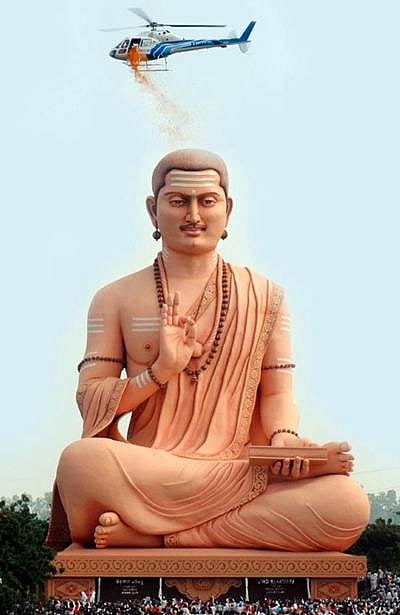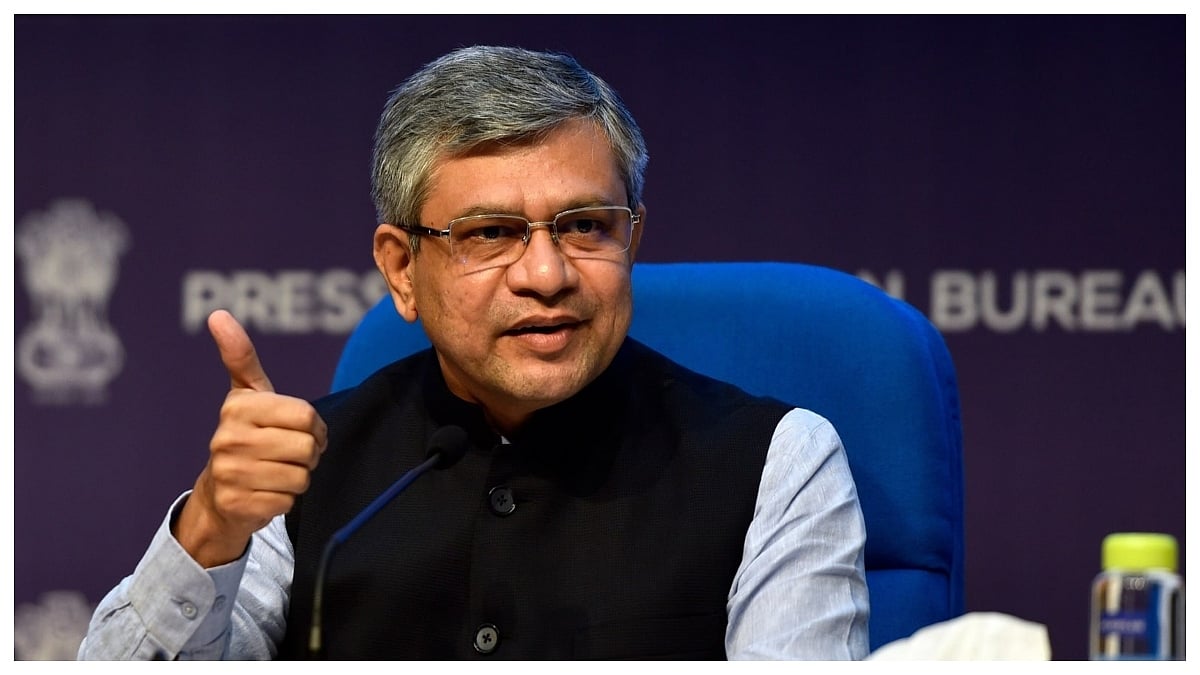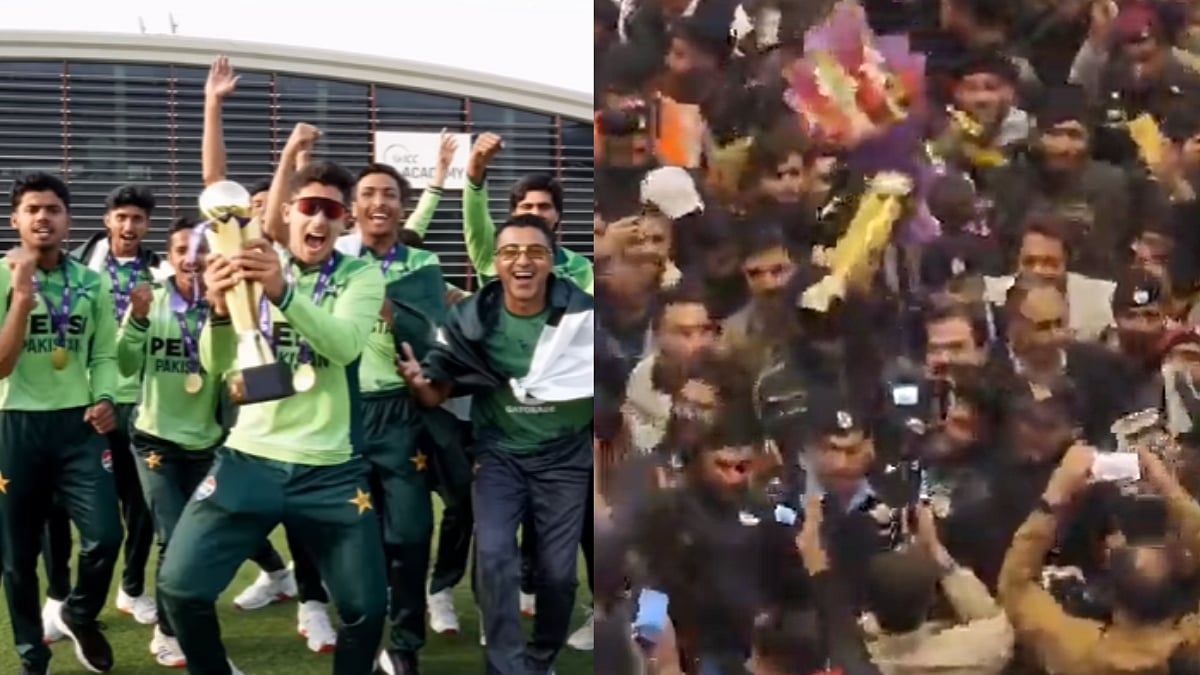He was the first to bring lyricism into Kannada literature and to convey his teachings, he wrote poems in simple Kannada known as ‘Vachanas’, writes MEERA S. SASHITAL.
Basaveshwara from his childhood was very intelligent and showed great inclination towards learning. His father Mandigaye Madiraja, a Brahmin was also very learned and wanted his son also to be learned. Madiraja being a Brahmin was very influential in his community. Mainly because the village called Bagevadi where he lived was an agrahara which had been given as a gift to the Brahmins by the king. This made the Brahmins very powerful and so Madiraja too held a high status in his community and was treated with great respect by the villagers.
Madiraja and his wife Madambe were childless initially and were sad. The priests whom they consulted advised them to observe the fast of Vrishabh and pray to Shiva’s mount Nandi the bull. As she had wished, when the child was born, and it being a son she named him Basava which in Kannada means a bull, a gift of Nandi. In 1106 A.D. Basaveshwara was born.
Basava grew up to be an extraordinary child, very intelligent and quick in learning. His father being a learned man, wanted his son to be instructed in Vedas and Upanishads and gain spiritual knowledge. Basava being a very clever child soon could recite verses from the Vedas. But right from his childhood he disliked the hypocrisy of the Brahmins. He was of contemplative mind. He would often ponder over questions like why people performed animal sacrifices during religious ceremonies; why people who worshipped snakes killed them when they entered people’s houses.
Basava’s father arranged for Basava’s Yagnopavit, that is the thread ceremony, and told him that the Brahmins will invest him with the sacred thread. Basava’s enquiring mind wanted to know what was the sacred thread. To Basava’s query his father explained to him that when Brahmin boys were old enough to be instructed in the religious scriptures and start their formal education, they were invested with this sacred thread. But Basava argued, why other castes did not wear it. He even refused to go through any ceremony that made discriminations. But finally under the pressure of his parents and the priests he had to yield. After his Upanayana ceremony he was initiated under a Guru and his formal teachings in literature, philosophy, Vedas, grammar, Music and other subjects began. However, Basava disapproved the method of parrot like teaching without understanding the meaning of it.
Basava, as he grew up could not bear to se the inequalities and injustices in the society. Ever since his parents had died, the people of his village were harassing him more. So he finally left the village and went to a place called Kudal Sangam situated at the confluence of the river Krishna and Malaprabha in Bijapur district.
There was a temple here called the Sangameswar Mandir and Sangameswar being Basava’s personal deity, he spent several years worshipping and serving there. But, even here he found the distinctions of caste and creed prevalent as at Bagevad, which made him very unhappy. Still he yearned for spiritual enlightenment and wanted to spread his spiritual message to the world. However, he realized that for this earning money and having dedicated followers were necessary.
Basava thinks of working at Raja Bijjal’s court in the treasury as he was very good in mathematics. To his luck, as he was waiting, the King’s chief treasurer, Sidhadandnath arrived and began to check the accounts. Basava who was watching keenly discovers an error and points it out to him. Sidhadandnath was overjoyed as this grave mistake would have caused a very heavy loss to the state. Immediately he appoints Basava and later marries his daughters Ganga Devi and Maya Devi to him.
Basava though he was a Shaivite himself, he respected all other faiths. He gave financial help to his followers and other devotees too. His rivals became jealous of him and tried to spoil his name by complaining to the king that Basava was squandering money. But the king learns the truth and Basava is proved innocent. Basaveshwara through his spiritual teachings becomes a popular religious leader and founder of a new community of Veerasaivism. He preached love, truthfulness and virtues of life. Besides working for his Veer Saiva sect, he also brought a social revolution by trying to improve the status of women and remove distinctions of caste and creed and give importance to dignity of labour.
Basava had always been devoted to Siva and dedicated himself to Siva’s service from the age of sixteen only. He found the caste system and ritualism in Hindu society shackling and senseless. So he created a new community with egalitarian ideals disregarding caste, class and sex. “He challenged orthodoxy, rejecting social convention and religious ritual.”
All the poets who versified in this period and enriched the treasure of Vachana poetry were staunch Shaivites. All the literature consists of remarkably striking lyrics. Basaveshwara wrote devotional Vachanas and established Virasaivism with eight features based on a rejection of inequality of every kind, of ritualism and taboo and exalting work in the world in the name of the Lord.
It is learnt Basaveshwara or Basavanna as he was also called, was the first to bring lyricism into Kannada literature. To convey his teachings, he wrote poems in simple Kannada known as ‘Vachanas’. He wrote 958 Vachanas in a language understandable to common man, He attained union with his cherished God Kudalasangameswara in 1167. The Lord of the Meeting Rivers (Kudalsangamadeva) his personal deity occurs in signature line of each Vachanas of his. A Vachana from Basavanna:
“The crookedness of the serpent is straight enough for the snake-hole. The crookedness of the river is straight enough for the sea. And the crookedness of our Lord’s men is straight enough for our Lord.”









